“Take the blues out of contemporary rock music—or pop, jazz and funk for that matter—and what you have left is a wholly spineless affair. A tasteless stew. Makes you shudder to think about it.” Stevie Ray Vaughan
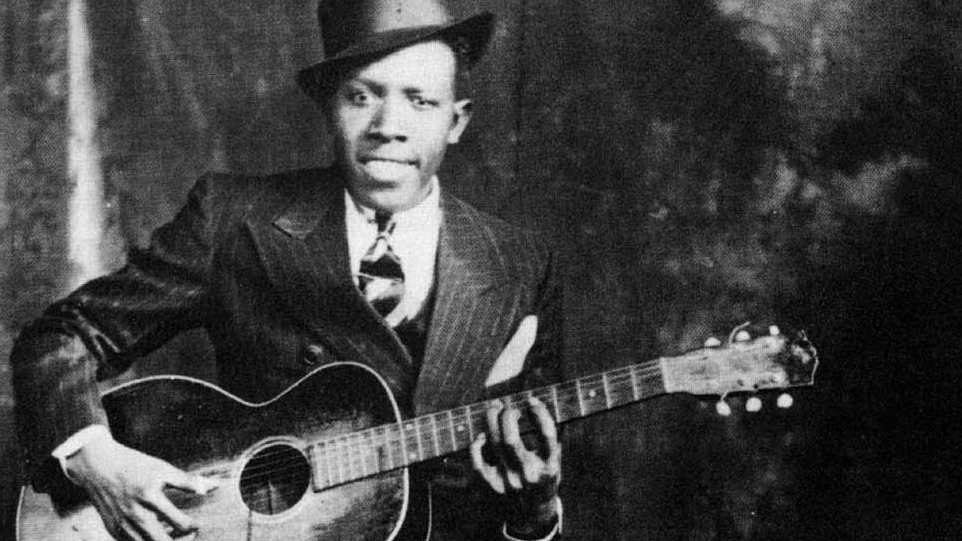
Robert Johnson
Johnson is the Great Grandfather/Patriarch of modern blues. His unique guitar style- which often sounds like more than one guitar player is present –combined with his gift of writing and singing has impacted too many famous and non-famous guitarists to name. Among the former are Jimi Hendrix, Keith Richards, Eric Clapton and others. Johnson’s talent was so extraordinary during the time that his recordings were released, that it led to the legend that he’d sold his soul at “The Crossroads” in the Mississippi Delta. Decades after his death Johnson was inducted into the Rock and Roll Hall of Fame, and is still cited today by many sources, including Rolling Stone magazine, as one of the greatest guitar players to ever live.
Big Bill Broonzy
Unlike Robert Johnson, Big Bill Broonzy achieved critical acclaim in his own lifetime. Broonzy was a virtuoso playing styles of music that crossed over from country blues, to urban blues, and even to folk music. In his early years he gained popularity playing predominantly in black “juke joints” but by the time of his death in 1958 he had gained in popularity across the US as well as in Europe.
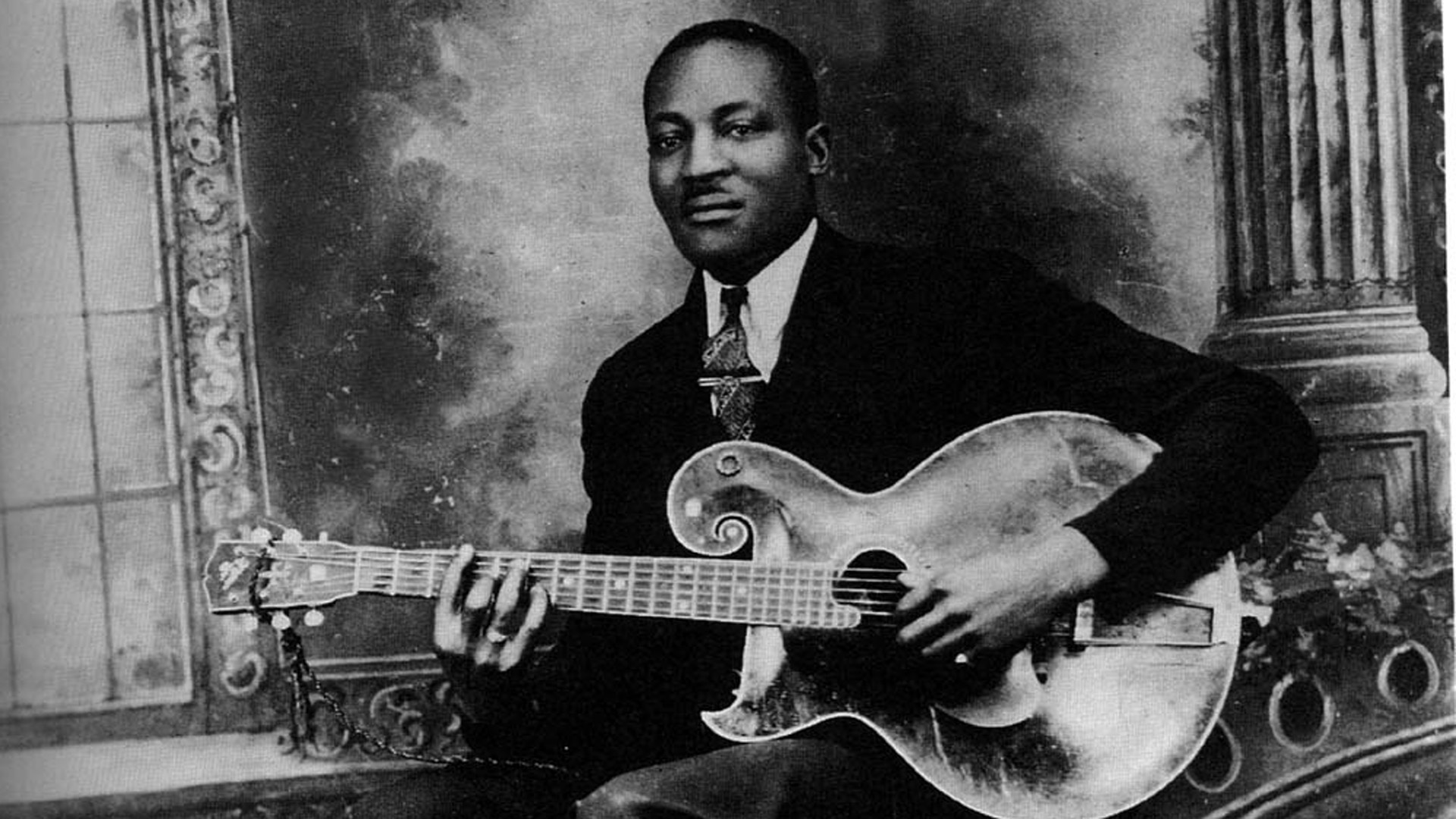
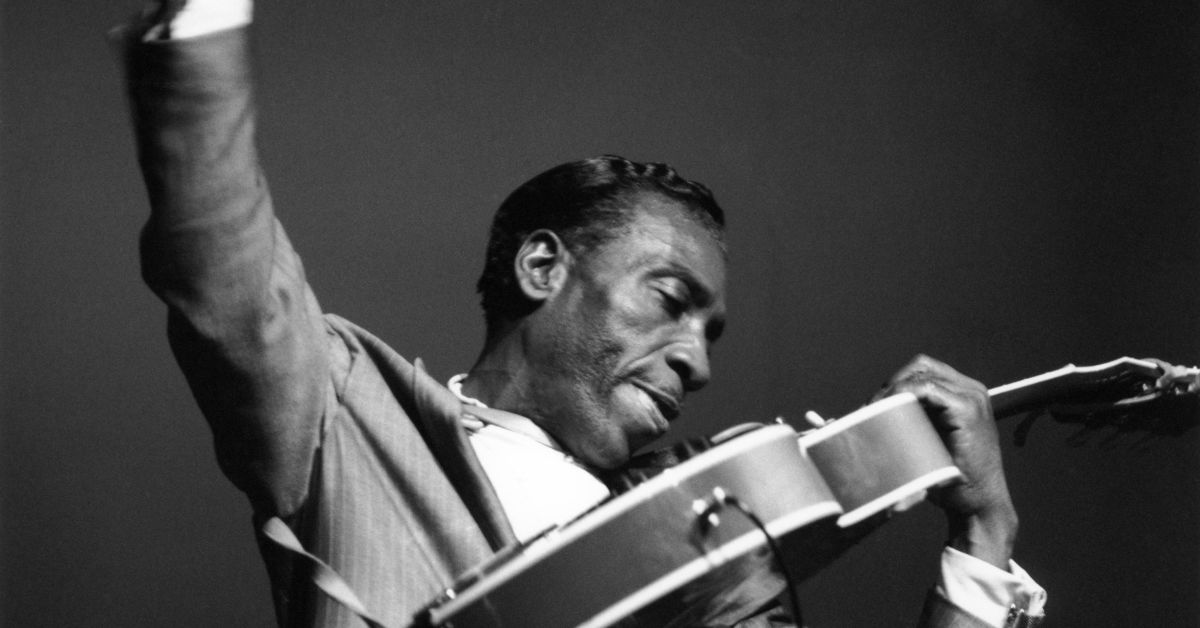
Aaron Thibeaux “T-Bone” Walker
Walker is perhaps the Grandfather of “electric blues” and an innovator of the “jump blues” sound that would be influential on the formation of Rock n’ Roll. Having grown up in a family of musicians, Walker learned to play several instruments, but it was of course the guitar that would make him famous during the 1940s. Walker’s song “Call it Stormy Monday” has proven timeless and transcended the blues genre into the pop field and has been recorded by such artists as Bobbie Bland and the Allman Brothers. Walker was inducted into the Rock and Roll Hall of Fame in 1987.
Sam John “Lightnin'” Hopkins
Hailing from Texas, Lightnin’ Hopkins recorded between 800 and 1,000 songs over the course of his career. While a singer, songwriter and pianist, Hopkins was known predominantly for his guitar playing and was a great influence on later generations of musicians who would define “Rock n’ Roll.” Rolling Stone magazine has listed Hopkins as one of the Top 100 greatest guitarists of all time and his obituary in the New York Times labeled him as “one of the great country blues and perhaps the greatest single influence on rock guitar players.”


John Lee Hooker
Hooker was perhaps one of the most unique among “Delta Blues” players, and is known for his stomping rhythms and a unique style of vocals. To list the musicians that he influenced would require a book, but suffice it to say that everyone from George Thorogood, ZZ Top and Stevie Ray Vaughan, among numerous others, have adopted his tones, style and rhythms in various songs. Growing up a sharecropper in Mississippi, Hooker was introduced to the guitar by his stepfather at a young age. One of the notable characteristics of Hooker’s style was his timing with relation to chord changes. While most songs change chords in a pattern, Hooker tended to change chords when it suited him to do so making him very difficult for backing musicians to follow.
Muddy Waters
Waters was born in Mississippi and migrated to Chicago in the 1940s. He is considered by many to be the Father of Chicago Blues, and was also a major inspiration to many Rock n’ Roll artists of the 1960s and beyond. Muddy helped put Chess Records, a Mecca of Blues Recordings, on the map in the 1950s and artists such as “Little Walter” and Otis Spann got their start in Muddy’s band. Having become very popular in England after a 1958 tour, Waters was a favorite among those who would bring about the British Rock craze of the 1960s. The Rolling Stones took their name from one of Water’s songs. Although recognition of his contributions would generally come later in his career, his accolades and accomplishments are too numerous to
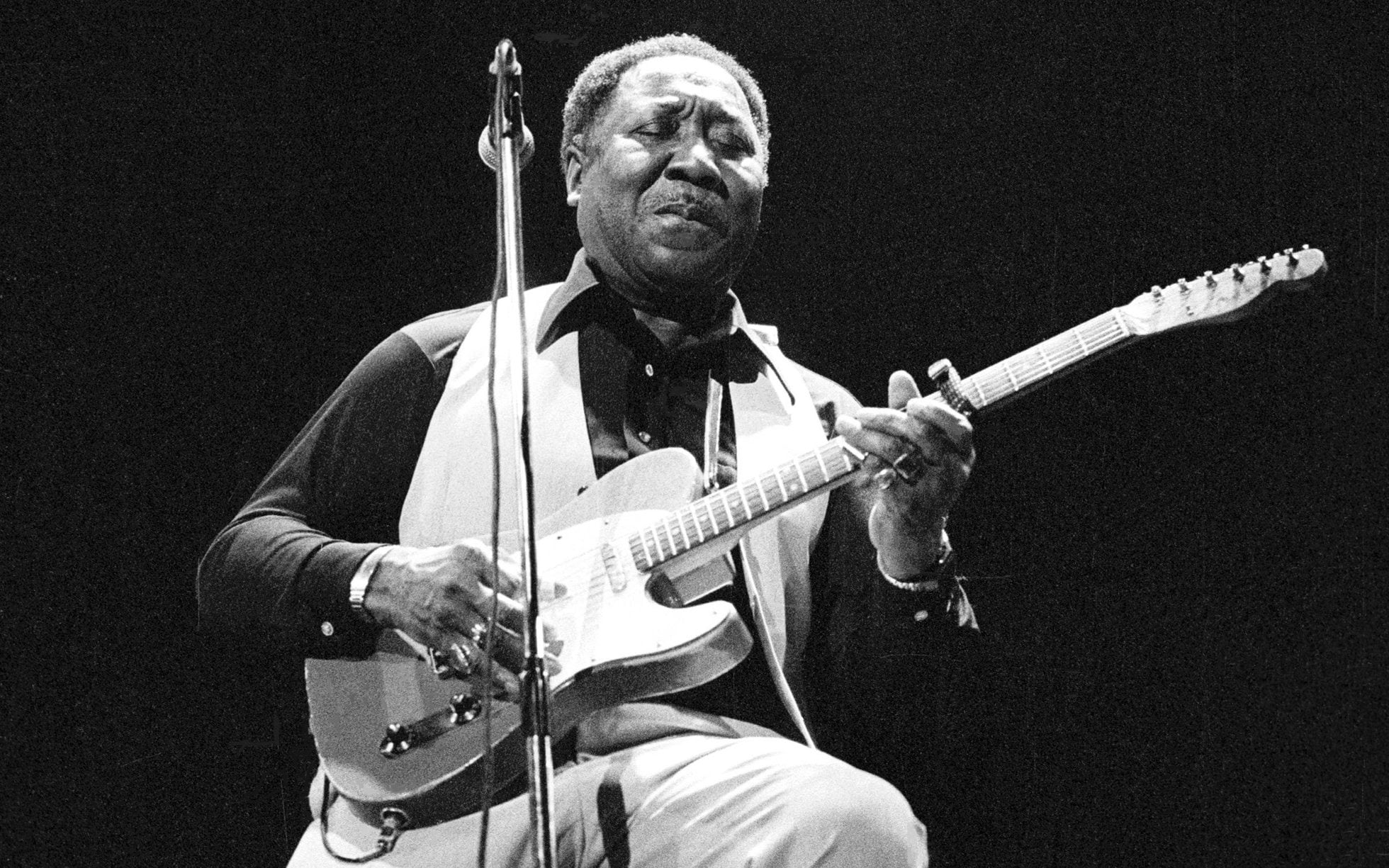
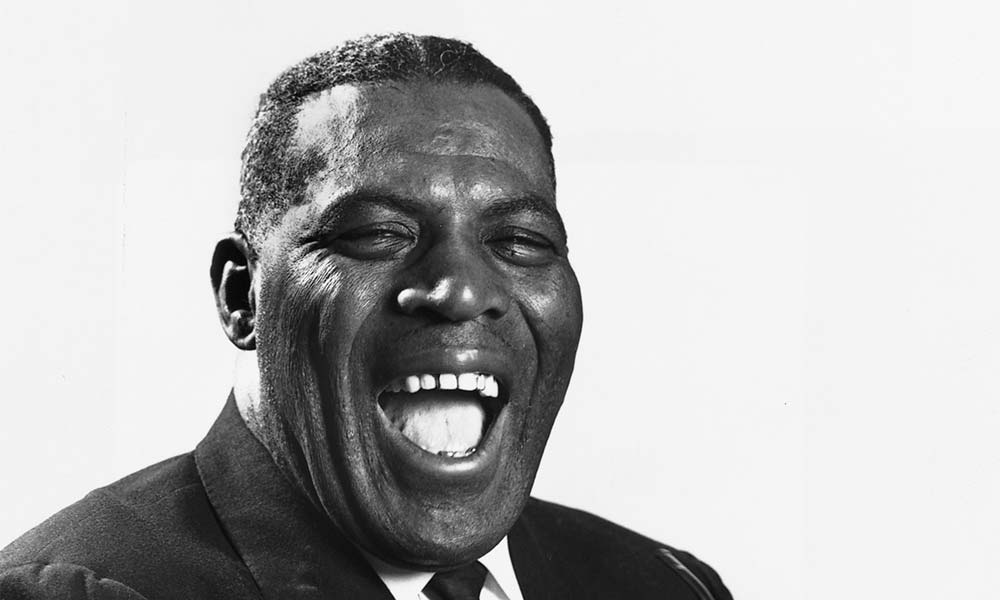
Howlin’ Wolf
Along with Muddy Waters, Wolf is considered one of the Godfathers of modern Blues. He had a unique sound that is difficult to duplicate, especially in the area of vocals. One producer, when recording Wolf for the first time, thought upon hearing him sing that there was something wrong with the microphone. After changing the mic out two or three times, he realized “that was really how he sang” and said “it sounded like he gargled with drano.” While that may be true, his live performances were electric and simultaneously entertained and frightened audiences. He is ranked in Rolling Stone’s 100 Greatest Artists of All Time.
Willie Dixon
If the Chess Record Label was the gateway for Blues into the American living room, Willie Dixon, from Vicksburg, Mississippi, was perhaps the driving force behind much of Chess Record’s success. While recognized as a writer, producer and arranger of many iconic recordings from the Chess era, it must not be forgotten that Dixon was also a tremendous musician in his own right.
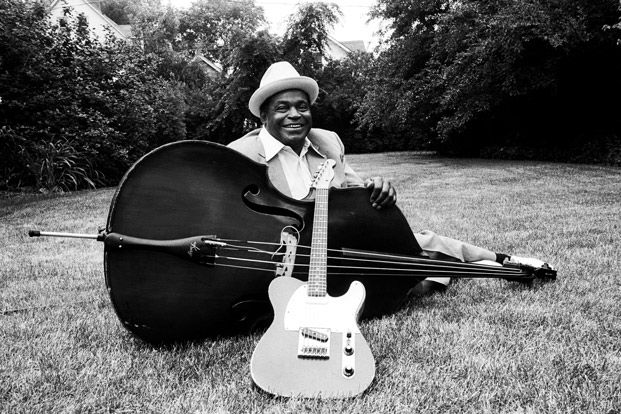

James Cotton
Cotton was born in Tunica, Mississippi and got his musical start playing blues harp in Howlin’ Wolf’s band. Prior to joining Muddy Waters’ band, he made his own solo recordings for Sam Phillips at Sun Records in Memphis and would later restart his own solo career. Cotton played on numerous well-known blues recordings for other artists over the past several decades and is one of the most renowned of all Blues Harp players.
Riley “B.B.” King
B.B. King may well be the single most influential, and well known, blues musician of all time. It would be difficult to point to anyone of his era who has gained more worldwide acclaim. Mostly recognized for his guitar style, which focuses on single string riffs with a recognizable vibrato and “trill”, it is sometimes overlooked that he likewise has one of the most powerfully projected voices of the genre. BB left his home in Indianola, Mississippi at the age of 21 and, with $11.00 in his pocket, headed to Memphis. He had been heavily influenced by his older cousin, Bukka White, to play guitar and in 1948 he made his first live appearance on Sonny Boy Williamson’s radio show. The rest, as they say, is history. King was inducted into the Rock and Roll Hall of Fame in 1987. His awards and accolades are too numerous to mention. As well, it should be noted that in concert he is at once electrifying and perhaps one of the most gracious superstars you’ll encounter.
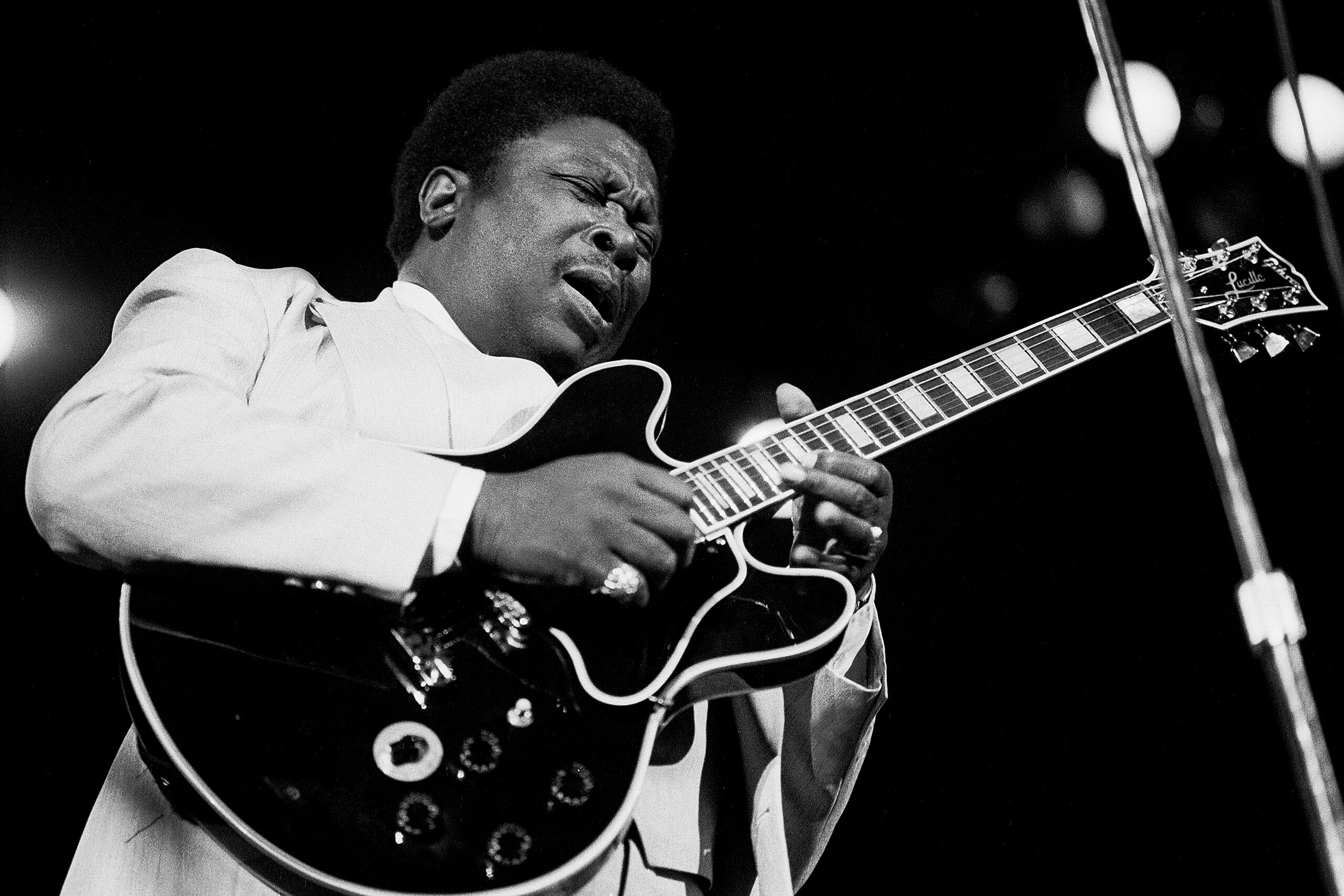
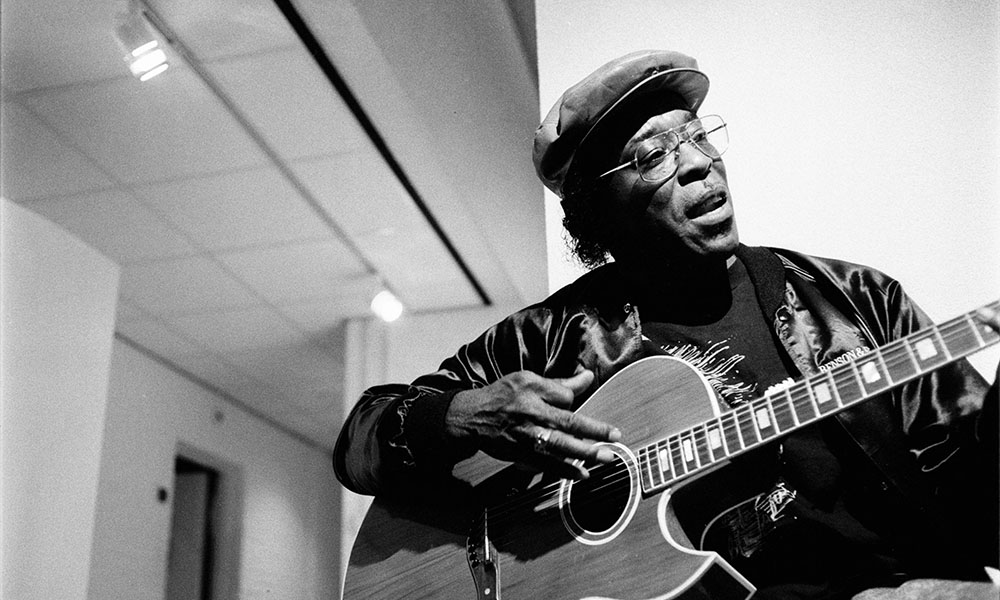
Buddy Guy
Buddy Guy, from Lettsworth, Louisiana, is generally regarded as a Chicago Blues artist, yet his style ranges from Delta Blues, to Chicago Blues, to soul and beyond. Buddy began with Chess records, who awarded him a contract after a “dual” on guitar with Magic Sam and Otis Rush. At Chess he performed mostly as a backing guitarist for other acts such as Muddy Waters. His guitar style sometimes sounds as though it is from outer space with the wild bends, violent vibratos and an attack that almost speaks to you- a sound that was adopted by Eric Clapton, Jeff Beck and Jimi Hendrix, the latter of whom once said that, “Heaven is lying at Buddy Guy’s feet while listening to him play guitar.” After decades of being virtually unknown, his career was jump started by Eric Clapton in the late 80s.
Otis Rush
Born in Philadelphia, Mississippi, Otis Rush made his way to Chicago in the 1940s and became one of the most acclaimed performers in that area. Rush was known for a unique sound of electric blues guitar that stemmed from the fact that he was left-handed and played his guitar strung upside down. Rush influenced numerous guitarists such as Eric Clapton, Michael Bloomfield and many others. His single, Double Trouble, was released in the late 1950s and later became the namesake for Stevie Ray Vaughan’s band. Rush made a musical comeback in the late 80s, and began to the US. His vocals and guitar playing on his 1994 album “Ain’t Enough Coming In” accounts for some of his finest musical work.
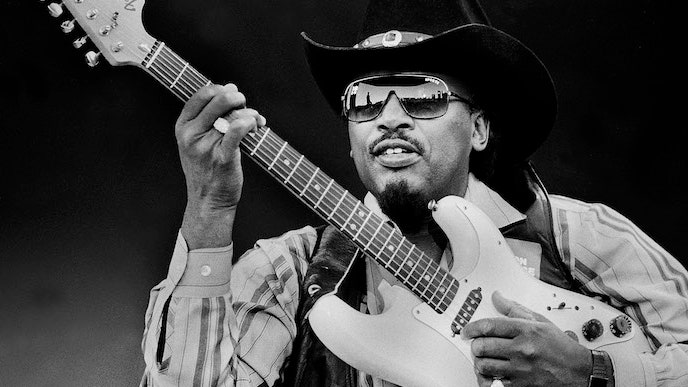
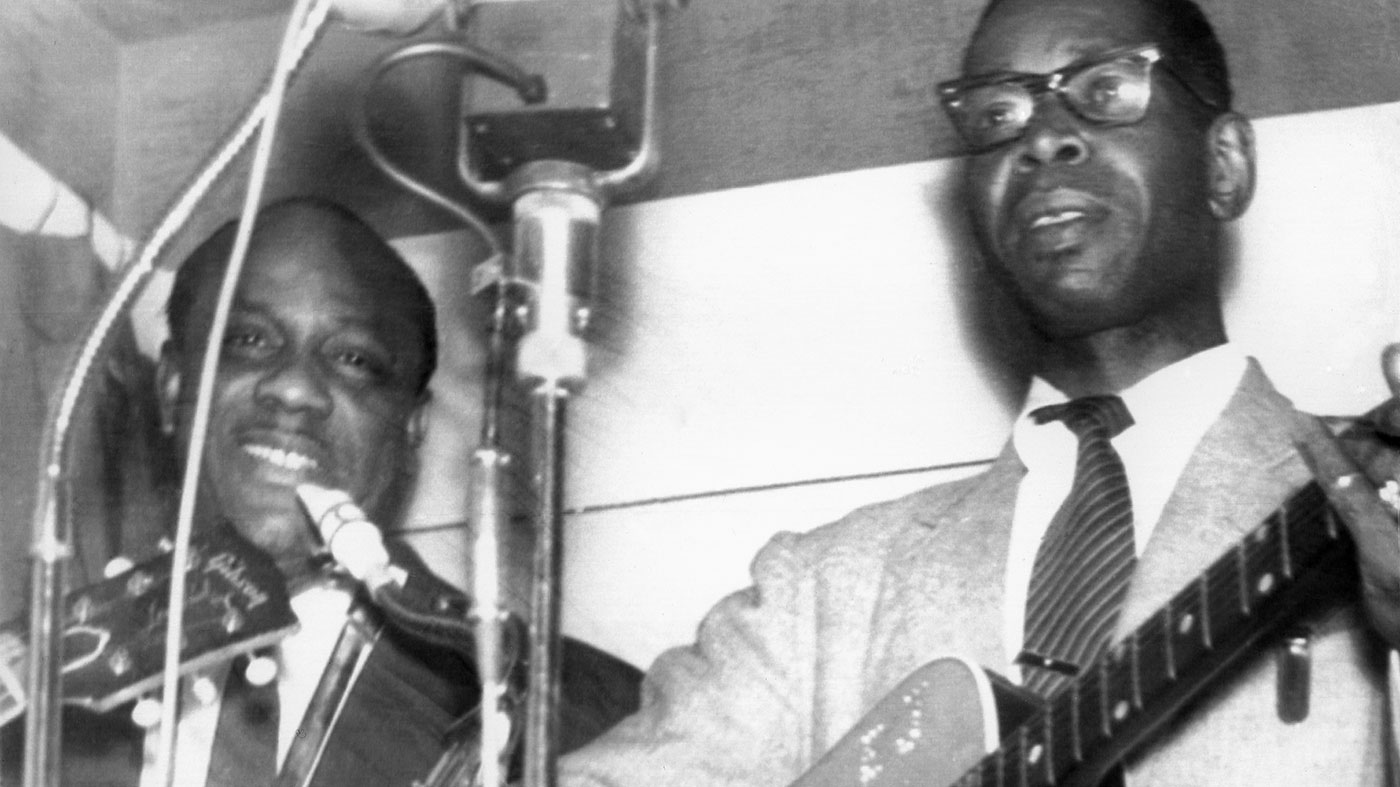
Elmore James
While remembered predominantly the “King of the Slide Guitar” players, having been studied by future musicians from Johnny Winter to Bonnie Raitt, it should be remembered that he was also a great singer, and a great stylist as well. Born in Richland, Mississippi, James served in the invasion of Guam (US Navy) and after the war began perfecting his guitar talents. He signed with Trumpet Records in 1951 and recorded with various other labels over the next few years. He died prematurely from a heart condition in 1963.
Jimmy Reed
No serious blues collection can be complete without at least one Jimmy Reed album. Jimmy’s singing and harmonica playing combined with his signature shuffle beat exemplifies the best of blues music. Born in Dunluth, Mississippi in 1925 Reed influenced numerous popular acts including Elvis Presley, the Rolling Stones, and Jimmie Vaughan.
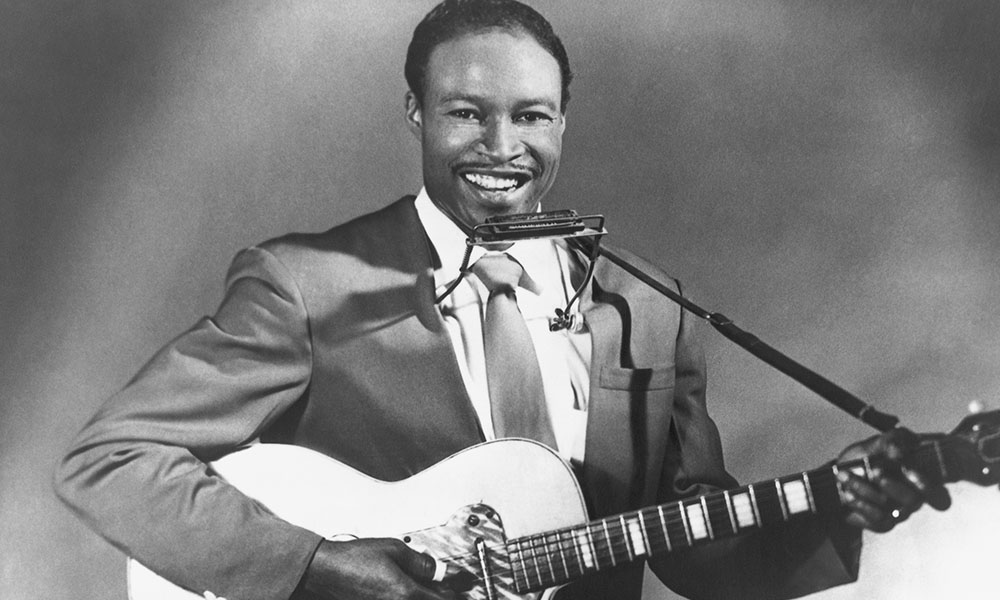
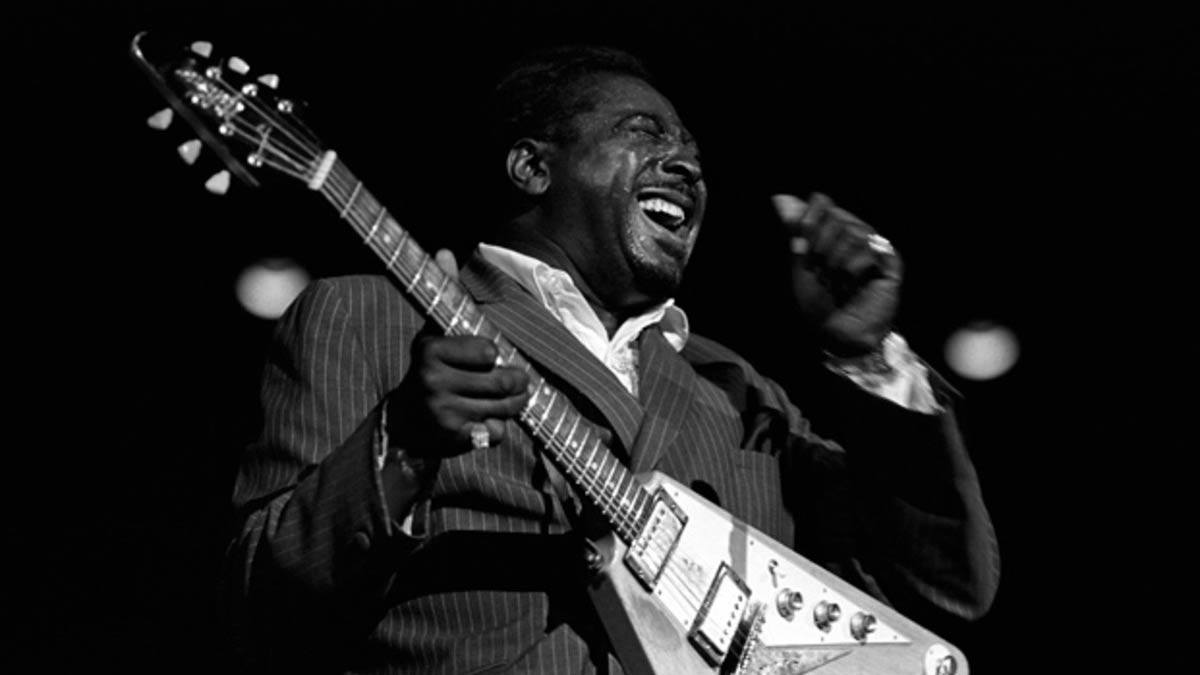
Albert King
King was a major influence on artists such as Jimi Hendrix, Stevie Ray Vaughan and a host of others. You can hear the influence of his style and his riffs in numerous Rock n’ Roll songs songs over the decades. Standing 6’4” and weighing 250 pounds, King had a set of hands that looked like hams, which he used to execute bending notes on heavy gauge guitar strings in attaining a unique tonal quality that most other players simply could not duplicate. King was versatile in that he could deliver a stinging attack in one song, and then play a smooth, soothing style in another. He delivered the same virtuosity in his vocal abilities.
Freddie King
Born in Texas, Freddie King was one of the great guitarists and vocalists of the blues genre. Although rejected time and again by Chess records, Freddie kept at it and became well known on Chicago’s West Side. One quality that set him apart from other artists was his ability to blend styles of guitar to create his own unique sound. The result was a virtuosity that allowed him to record a cross section of styles ranging from the deepest blues to Rock n’Roll and Funk. He was inducted into the rock and Roll Hall of Fame in 2012.
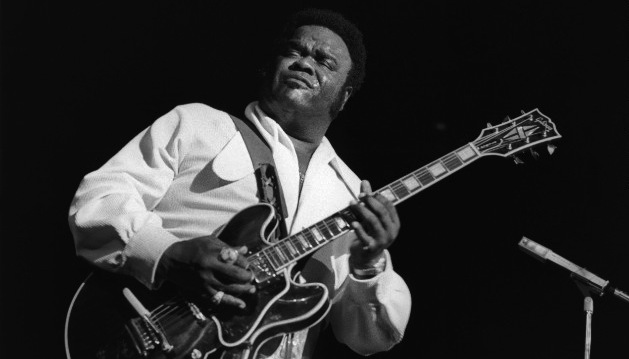
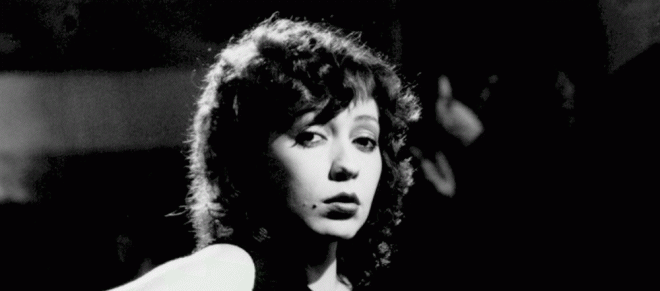
Lou Ann Barton
Although not widely known outside of her native Texas, Lou Ann Barton is a vocal powerhouse. Her vocal prowess extends from growling rock-a-billy, shuffle style blues in the style of Wanda Jackson, to softer ballads that are reminiscent of Etta James. Her Texas twang lures you in regardless of the style of song she happens to be singing. Lou Ann was the original vocalist for the band “The Fabulous Thunderbirds” and was featured for a time with a swing band out of Rhode Island called “Roomful of Blues”. When you hear her sing, you’ll be hooked.
Jimmie Vaughan
The older brother of Stevie Ray Vaughan, Jimmie as a kid suffered from a broken collar bone received playing football. While recuperating, a neighbor brought him a guitar and within hours he was picking out melodies as though he’d been playing for months. As a young teen, Jimmie was booked to perform around his local area of Oak Cliff, Texas and billed as “Little Freddie King”. When people would show up and see that he was white, it was fairly obvious that he was not King’s son. After hearing a couple of songs, it didn’t matter; they were hooked. Jimmie went on to form the band “The Fabulous Thunderbirds” which would open shows for famous blues players at the legendary “Antones” in Austin, Texas. Years after the untimely death of his younger brother, Stevie, Jimmie launched his own solo career.
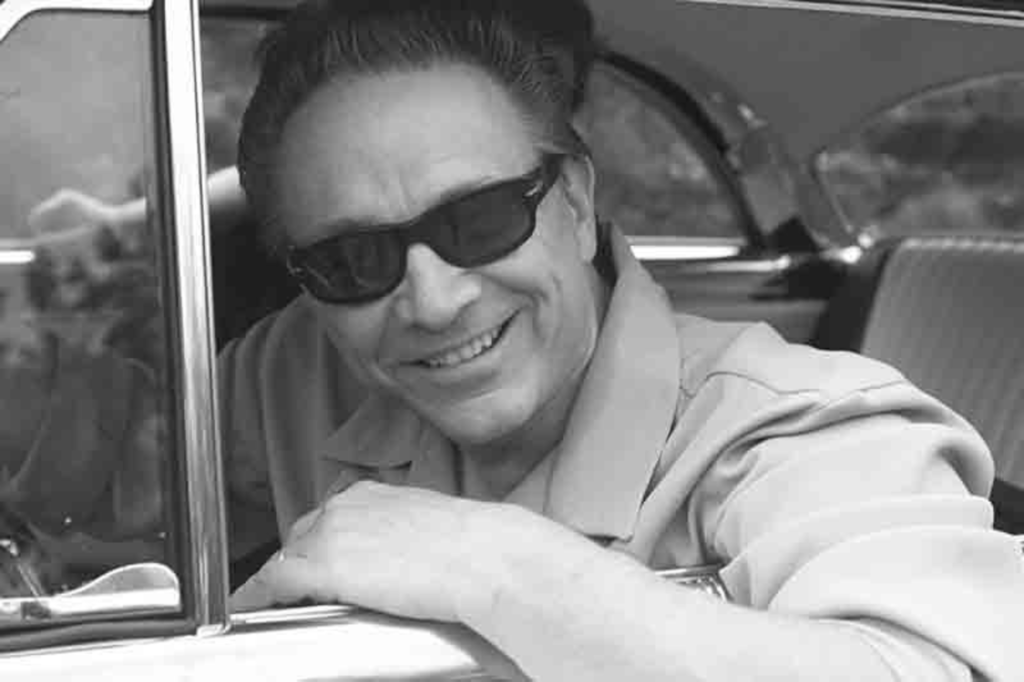
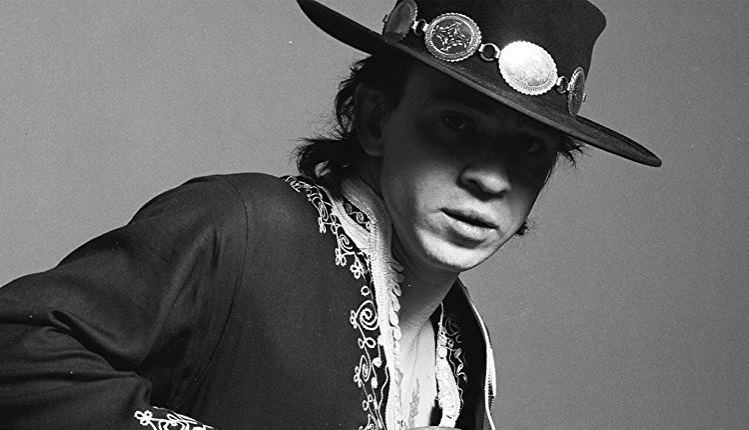
Stevie Ray Vaughan
Born in Oak Cliff, Texas in 1954, Stevie Ray is arguably the greatest blues guitarist to have ever lived. Stevie mastered and combined styles ranging from Lightnin’ Hopkins to Jimi Hendrix, and was of course heavily influenced by his hero, Albert King. Eric Clapton said of Stevie, “I don’t think anyone has commanded my respect more, to this day. The first time I heard Stevie Ray, I thought, ‘Whoever this is, he is going to shake the world.’ I was in my car and I remember thinking, I have to find out, before the day is over, who that guitar player is.”
His music is powerful and gripping in a way that few artists have attained and he had the ability to make any sound he wanted to come from his guitar. Stevie can likewise be credited for making blues mainstream. He once said that “without Buddy guy, there would be no Stevie Ray Vaughan”, but Stevie’s own music exposed a new generation to blues pioneers such as Guy and others. He was instrumental in bringing about the blues revival of the 1980s and 1990s and his music will be enjoyed for generations.
Vaughan was respected even by the masters from whom he’d learned his craft. Upon learning of his death, Blues legend John Lee Hooker said of Vaughan, “To me, he’s one of the greatest blues singers there ever was. I’m very sad because I wish he were here. But his music will never die. He’s one of the greatest blues musicians that ever picked up a guitar. The first time we met was in Austin, Texas at Antone’s, and it was him and his brother, Jimmie. That was fifteen or twenty years ago, and at that time he could play tremendously. And I said, ‘Someday this kid’s going to shake the whole world up’. And he was one of the nicest people. You couldn’t help but like him, you couldn’t help but love him. I never cry, but yesterday, when I heard the news [about Stevie’s death], I sat down on my bed and cried like a little baby.”


